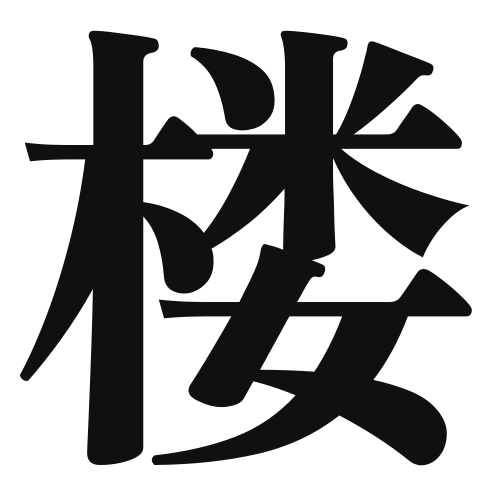1. Overview of Meaning
The kanji “楼” (pronounced “rou” in Japanese) refers to a multi-story building or tower, often used to describe structures like pagodas or tall buildings. It conveys a sense of height and architectural elegance.
2. Formation and Radical
Formation of the Kanji: The kanji “楼” is a phonetic compound (形声文字), which combines the meaning of a building with a phonetic element. The left part “亻” (a variant of “人” meaning person) suggests a connection to human activity, while the right part “娄” provides the pronunciation.
Radical: The radical of “楼” is “亻”, which is related to people or human actions.
3. Examples of Usage
Common Words and Phrases: Some common words that include “楼” are “高楼” (tall building) and “楼閣” (tower or pavilion).
Example Sentences in Daily Conversation:
- 「あの高楼は新しいオフィスビルです。」(That tall building is a new office building.)
- 「この街には美しい楼閣がたくさんあります。」(There are many beautiful towers in this city.)
4. Synonyms and Antonyms
Similar Kanji: A similar kanji is “館” (kan), which also refers to a building but often implies a larger, more formal structure like a hall or mansion.
Opposite Meaning Kanji: An antonym could be “地” (chi), meaning ground or earth, which contrasts with the elevated concept of “楼”.
5. Cultural and Historical Background
Connection to Japanese Culture: In Japan, “楼” is often associated with traditional architecture, such as pagodas found in temples, symbolizing spiritual elevation and connection to the heavens.
Proverbs and Idioms: One common saying is “楼閣の夢” (dream of towers), which refers to lofty ambitions or dreams that may be difficult to achieve.
